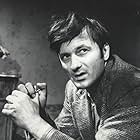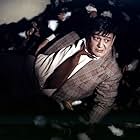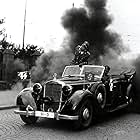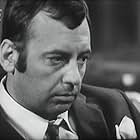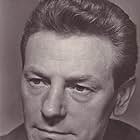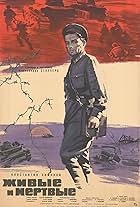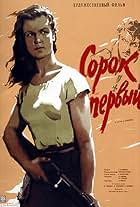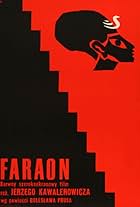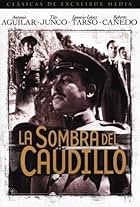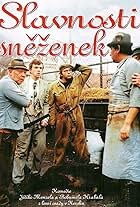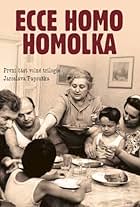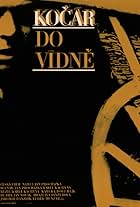The assasination of Heydrich in Prague during WWII.The assasination of Heydrich in Prague during WWII.The assasination of Heydrich in Prague during WWII.
- Awards
- 1 win & 2 nominations
Radoslav Brzobohatý
- Adolf Opálka alias nadporucík Král
- (as Brzobohatý)
Rudolf Jelínek
- Jan Kubis alias rosmistr. Strnad
- (as Jelínek)
Ludek Munzar
- nadporucík Sedlák
- (as Munzar)
Jirí Kodet
- rosmistr Tousek
- (as Kodet)
Josef Vinklár
- rotný Karel Vrbas
- (as Vinklár)
Siegfried Loyda
- Reinhard Heydrich
- (as Loyda)
Harry Studt
- Admirál Canaris
- (as Studt)
Wolf Goette
- esesák Jacobi
- (as Goette)
Gerhard Rachold
- SS-Sturmbannführer Görke
- (as Rachold)
Vlastimil Canek
- rotmistr Zelinka
- (as Canek)
Eduard Dubský
- plukovnik Horst
- (as Dubský)
Jaroslav Dufek
- rotmistr Tolar
- (as Dufek)
Ivan Foustka
- gestapák Pawlitz
- (as Foustka)
Gustav Heverle
- Kapitán
- (as Hevrle)
Vladimír Hlavatý
- odbojár Otradovec
- (as Hlavatý)
- Director
- Writers
- All cast & crew
- Production, box office & more at IMDbPro
Storyline
Did you know
- ConnectionsReferenced in Particka: Episode #7.1 (2014)
- SoundtracksSkoda lásky aka Beer Barrell Polka
Music by Jaromir Vejvoda
Featured review
None of the English language films dealing with the assassination of Reinhard Heydrich, referred to affectionately by Hitler as 'the man with the iron heart', is wholly satisfactory and it comes as no surprise that the most effective version is Czechoslovakian.
Its director Jiri Sequens has been much disparaged because of his links to Moscow but this is generally regarded as his finest film. He believed that for dramatic purposes one cannot improve on History itself and has made this in the manner of a skilled documentarist rather than imposing his own style. Its sense of 'being there' is heightened by the stark black and white cinematography of Rudolf Milic and the fact that the protagonists are played by actors pretty well unknown in the West adds further to its authenticity. It is the chilling portrayal of Heydrich by an East German radio actor named Siegfried Loyda that lingers longest.
Sequens' knack for action sequences is evident in the Nazi attack on the Cathedral which takes up the last twenty minutes and which is brilliantly handled.
The power of this film lies in its simplicity and not for nothing was it admired by a certain Robert Bresson.
The ultimate accolade came from the most bizarre and unexpected source. Heydrich's widow attended the premiere and said "Yes, it was just like that."
Its director Jiri Sequens has been much disparaged because of his links to Moscow but this is generally regarded as his finest film. He believed that for dramatic purposes one cannot improve on History itself and has made this in the manner of a skilled documentarist rather than imposing his own style. Its sense of 'being there' is heightened by the stark black and white cinematography of Rudolf Milic and the fact that the protagonists are played by actors pretty well unknown in the West adds further to its authenticity. It is the chilling portrayal of Heydrich by an East German radio actor named Siegfried Loyda that lingers longest.
Sequens' knack for action sequences is evident in the Nazi attack on the Cathedral which takes up the last twenty minutes and which is brilliantly handled.
The power of this film lies in its simplicity and not for nothing was it admired by a certain Robert Bresson.
The ultimate accolade came from the most bizarre and unexpected source. Heydrich's widow attended the premiere and said "Yes, it was just like that."
- brogmiller
- Oct 3, 2021
- Permalink
Details
- Runtime1 hour 44 minutes
- Color
- Sound mix
- Aspect ratio
- 2.35 : 1
Contribute to this page
Suggest an edit or add missing content








